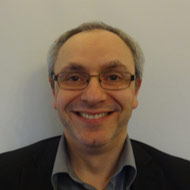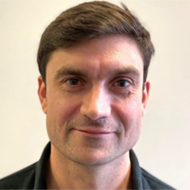Gary supports Natural England's Chief Scientist in ensuring the credibility and impact of Natural England's (NE) science and evidence. He champions the scientific capabilities of NE's staff, which spans natural and social science. He leads on the development of a new strategic direction for specialist capability, highlighting how best to acquire the skills needed to drive up professional standards. He also leads on horizon scanning and futures to inform strategic thinking and on NE’s contribution to developing more strategic approaches to acquiring and using research and evidence across the Defra-network.
Gary developed an interest in policy following his work in consultancy, and led the energy and environment programme at the Parliamentary Office of Science and Technology. He has worked extensively with the Government Chief Scientific Advisor and Science Minister to develop new policy and delivery mechanisms to strengthen the relationship between science and society, and has informed the development of the Natural Environment White Paper.
Gary joined the IES in 2013, became a Fellow in 2014 and joined the IES Council in the same year. "I am keen to...take an active role in driving up the standards of science and knowledge exchange in evidence-based approaches to policy and decision-making. I have a particular interest in interdisciplinary, systems-based approaches to applying science to environment and sustainability challenges and to this end... The IES can reach widely across the environmental sciences and across the academic, practitioner, policy-maker divides, helping to move environmental sciences forward and maximize the chances of achieving impact in tackling real-world issues."
Gary feels the greatest impact he's made throughout his career include the impact he has made in improving the debate on environmental and sustainability issues in the UK parliament during his time at POST, during his time at (what is now) the Government Office for Science where he was successful in inventing the Sciencewise programme and embedding a more dialogue-focused approach to handling contentious issues in science and technology, and his input to the Natural Environment White Paper. He hopes the latter can continue to shape a more strategic approach to acquiring and using science and evidence across the Defra-network.
At present, Gary is working as a member of the scientific review group for a project to develop a 'Nature Outlook' for Europe. This is a scenario-based study that explores the future of nature and landscapes in Europe, the various ways society values nature and landscapes, and possible policy strategies to protect and develop them. The project aims to support discussions on the implementation of policy strategies to reach the 2020 biodiversity targets, and strategies to realize the biodiversity vision for 2050.
As someone with a professional interest in future studies - rather than making specific future plans - Gary advocates flexibility and agility, and as such tends to adopt a general direction in which he wishes to head and tack accordingly as the winds of change blow. His key driver is to professionalise and operationalise the ideas of sustainability science and to use this science as a platform for a more responsible approach to innovation. His ambitions are to strengthen the interdisciplinary, systems-based approaches to environmental sciences, seeking real and productive relationships and partnerships across institutional as well as disciplinary divides.



